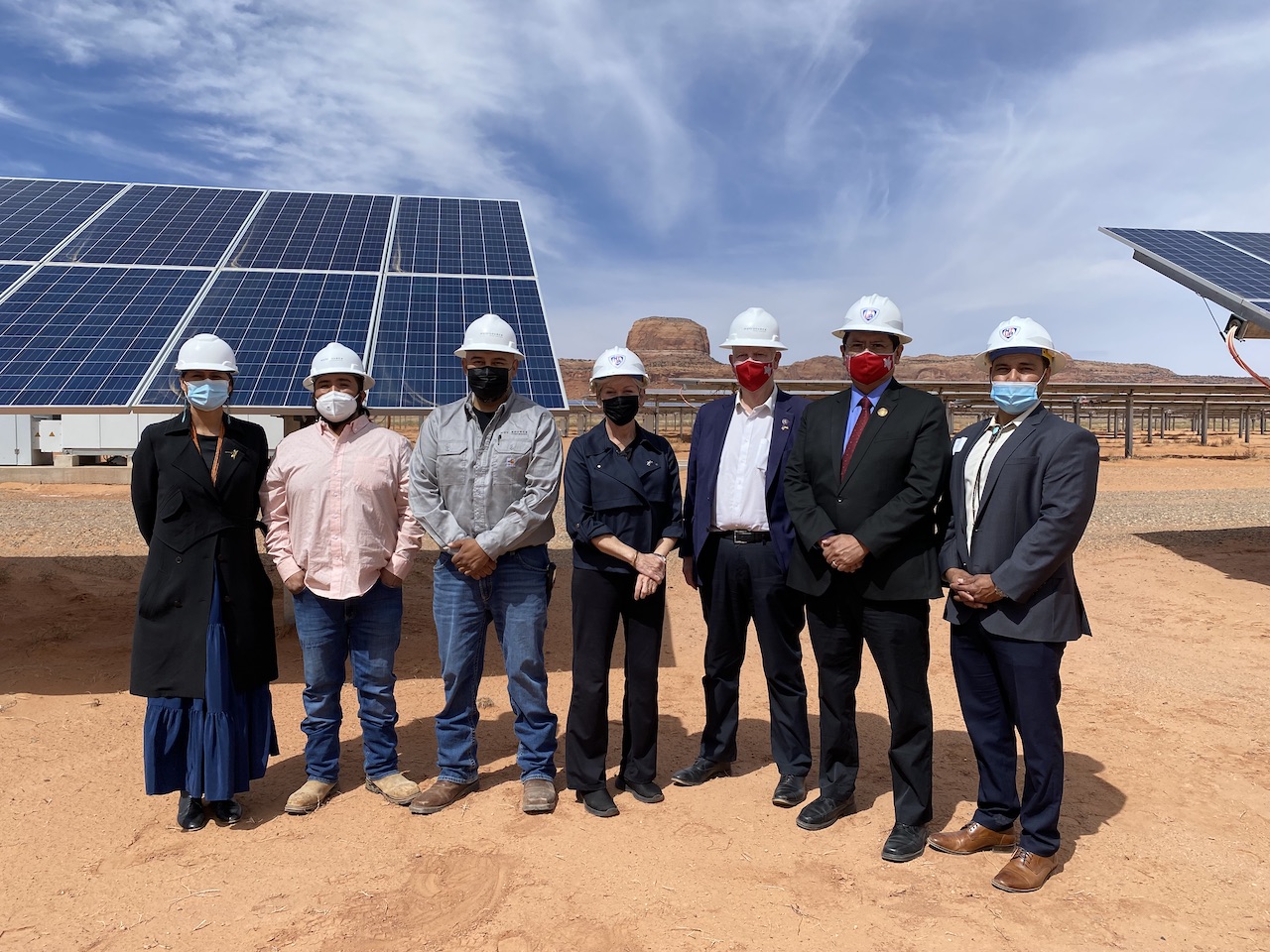
- Details
- By Jenna Kunze
Today U.S. Secretary of Energy Jennifer Granholm visited Navajo Nation to discuss the nation’s future in renewable energy.
Granholm was joined by Rep. Tom O’Halleran (D-AZ) and Navajo Nation President Jonathan Nez in Kayeta, Arizona, where their conversation centered on the Nation’s recent $1.2 million grant from the U.S. Energy Department to construct a solar microgrid and battery storage to provide clean electricity for 24 tribal homes.
U.S. Office of Indian Energy Director Wahleah Johns, a member of the Navajo Nation, Council Delegates Nathaniel Brown, Jimmy Yellowhair, and Amber Kanazbah Crotty, and Black Mesa resident and Executive Director of the Tó Nizhóní Ání non-profit organization, were also part of the discussion.
“Through the hard work of the Kayenta community, 24 Navajo families will have clean electricity in their homes for the very first time. This is a remarkable achievement thanks to the collaboration of the Navajo Nation and the Biden-Harris Administration,” Nez said in a statement. “This very productive dialogue also included perspectives and input from the grassroots level.”
Granholm also visited the Kayenta Solar facility that provides over 55-megawatts of solar energy that electrifies approximately 36,000 homes on the Navajo Nation, in addition to the 24 homes in Kayenta that will benefit from the clean electricity project. The project's total cost is estimated to be $2.8 million, with additional funding from the Navajo Nation.
Since taking office, Nez along with Vice President Myron Lizer have supported additional solar facility developments in the communities of Cameron, Red Mesa, and Huerfano to build the Navajo Nation’s cleaner energy portfolio.
More Stories Like This
Trump signs law that revokes some limits on drilling in Alaska’s National Petroleum ReserveSouthern Sierra Miwuk Nation Gets 900-Acres ofLand Back
Chilkat Indian Village Tells New Palmer Mine Owners They Are “Not Welcome” in Chilkat Valley
Tribes, Coastal Group Ask Army Corps to Revoke Permit for Texas Export Terminal
Michigan Tribes Tell Supreme Court: Don’t Bail Out Enbridge
Help us defend tribal sovereignty.
At Native News Online, our mission is rooted in telling the stories that strengthen sovereignty and uplift Indigenous voices — not just at year’s end, but every single day.
Because of your generosity last year, we were able to keep our reporters on the ground in tribal communities, at national gatherings and in the halls of Congress — covering the issues that matter most to Indian Country: sovereignty, culture, education, health and economic opportunity.
That support sustained us through a tough year in 2025. Now, as we look to the year ahead, we need your help right now to ensure warrior journalism remains strong — reporting that defends tribal sovereignty, amplifies Native truth, and holds power accountable.
 The stakes couldn't be higher. Your support keeps Native voices heard, Native stories told and Native sovereignty defended.
The stakes couldn't be higher. Your support keeps Native voices heard, Native stories told and Native sovereignty defended.
Stand with Warrior Journalism today.
Levi Rickert (Potawatomi), Editor & Publisher


